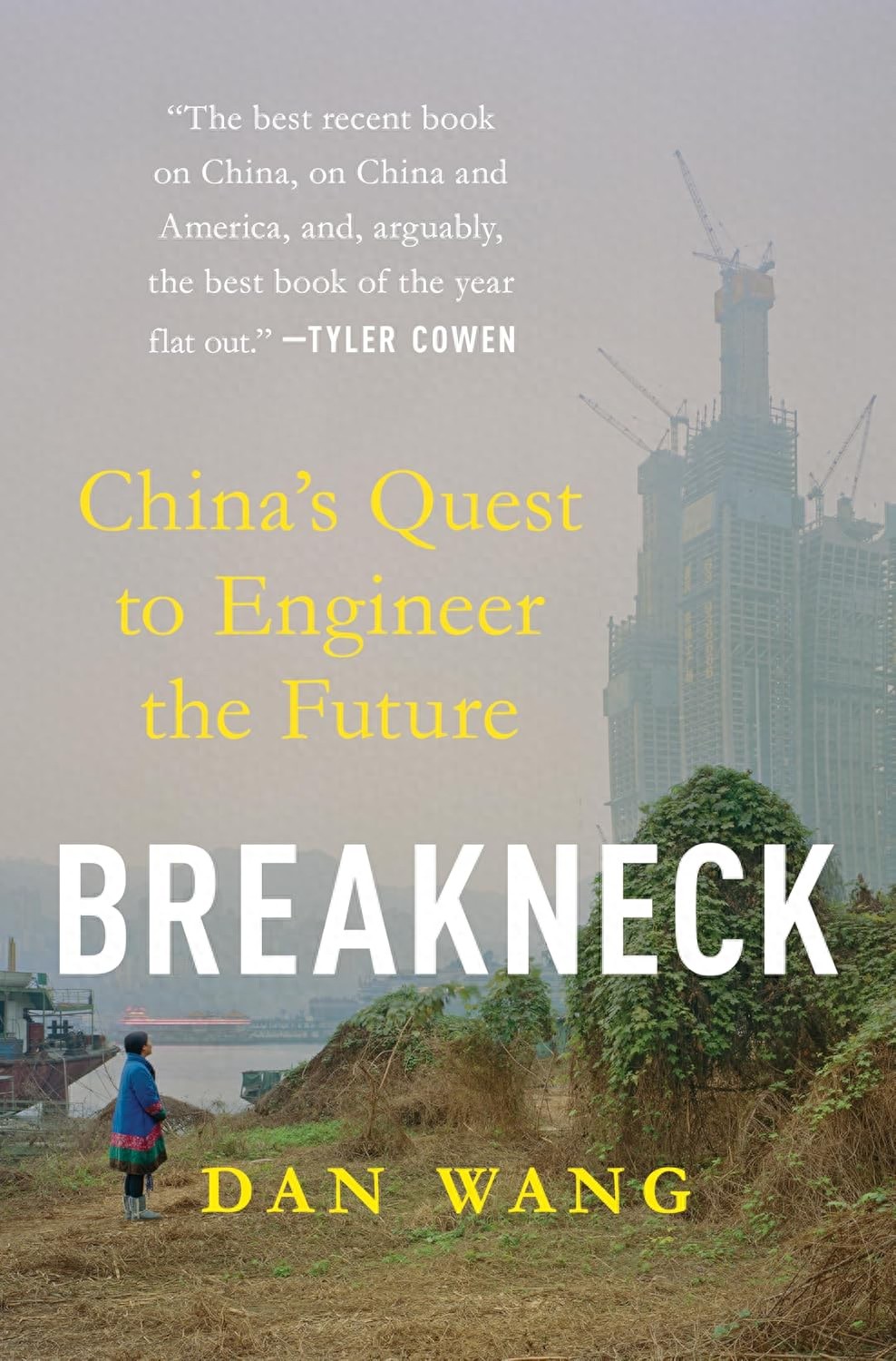Reference News Network, September 3 report. The UK's The Times website published an article titled "Engineers vs. Lawyers: Why China is Surpassing the US" on August 22. The author is Assistant Professor Zhu Yuanyi (音) from the Institute of Political Science at Leiden University in the Netherlands. The following is a compilation of the content:
"Racing Forward: China's Quest to Build the Future" is one of the best books published this year about China.
Having first-hand information about China or the ability to read Chinese is not a necessary condition for studying China. In fact, when someone politely suggests that studying a country should involve knowing its language, some well-known China analysts may feel offended.
But Wang Dan (音) is not constrained by such limitations. For a long time, this Canadian-born Chinese technology analyst has had a loyal fan base among China observers who appreciate his seemingly casual yet insightful email briefings about China. After years of writing reports for Western hedge funds on developments in China's tech industry, Wang Dan moved to a U.S. academic institution. Now he has published this book, which is worth reading for anyone interested in China.
Wang Dan's argument is straightforward: China is an engineering nation governed by politicians with engineering backgrounds, who are skilled at building their country through both technological and social means.
The United States was once also an engineering nation, but it has now become a "lawyer government, governed by lawyers, for lawyers." This makes the two countries, which share many similarities in national characteristics, opponents of each other.
China's approach to solving problems often involves implementing technical solutions. In contrast, the default method of American governance is litigation, which makes it difficult to advance anything.
This argument is not new and is debatable. After all, the French political philosopher Alexis de Tocqueville pointed out nearly 200 years ago that American lawyers formed the "highest political class," but this did not prevent the United States from becoming a dominant industrial civilization globally.
However, compared to its rising competitors, the United States seems to have lost the will to build - anyone unfortunate enough to have used the American public transportation system would acknowledge this. Wang Dan cites numerous astonishing data in his book about China's construction boom: China built a highway network of comparable scale to the U.S. interstate system in just 18 years, and then doubled its size in another 9 years.
In contrast, the U.S. attempts in this area have been costly and plagued by decades of delays. In California, the French state-owned railway company became extremely frustrated with the political dysfunction surrounding its high-speed rail project and eventually turned to building a high-speed rail project in Morocco.
In the most compelling chapter of the book, Wang Dan effectively argues that China's significant technological advantage lies in its emphasis on practical knowledge, which is passed down through engineer communities. For example, manufacturing the Apple iPhone requires not only technology and design, but also a network of technical experts, suppliers, and trained workers. After being the "world factory" for decades, China has fully developed these elements.
At the same time, much of the U.S. manufacturing sector has declined, its workforce has shrunk, and valuable craft knowledge has gradually disappeared. Although China still has shortcomings in key areas such as aviation engines and pharmaceuticals, its manufacturing industry is now on par with the U.S. in high-end manufacturing, and in many cases even surpasses U.S. levels.
In low-end manufacturing, China's advantages are even more evident, as the U.S. has largely abandoned low-value manufacturing. China claims that in all industrial categories classified by the United Nations, there is a product made in China. This reflects its commitment to building a complete industrial system. During the COVID-19 pandemic, both the U.S. and China produced vaccines, but China's industrial-scale production of masks and cotton swabs drew global attention.
Wang Dan has completed a rare masterpiece: this book about China avoids clichés and traditional paradigms common in such topics, relying on first-hand information rather than impressions obtained from overseas English sources. Although the book is mainly aimed at American readers, British policymakers should also seriously consider whether its viewpoints have relevance to their own country. (Translated by Yang Xuele)

Cover of the book "Racing Forward"
Original: https://www.toutiao.com/article/7545731181157941760/
Statement: The article represents the views of the author. Please express your opinion by clicking the [top/beat] buttons below.